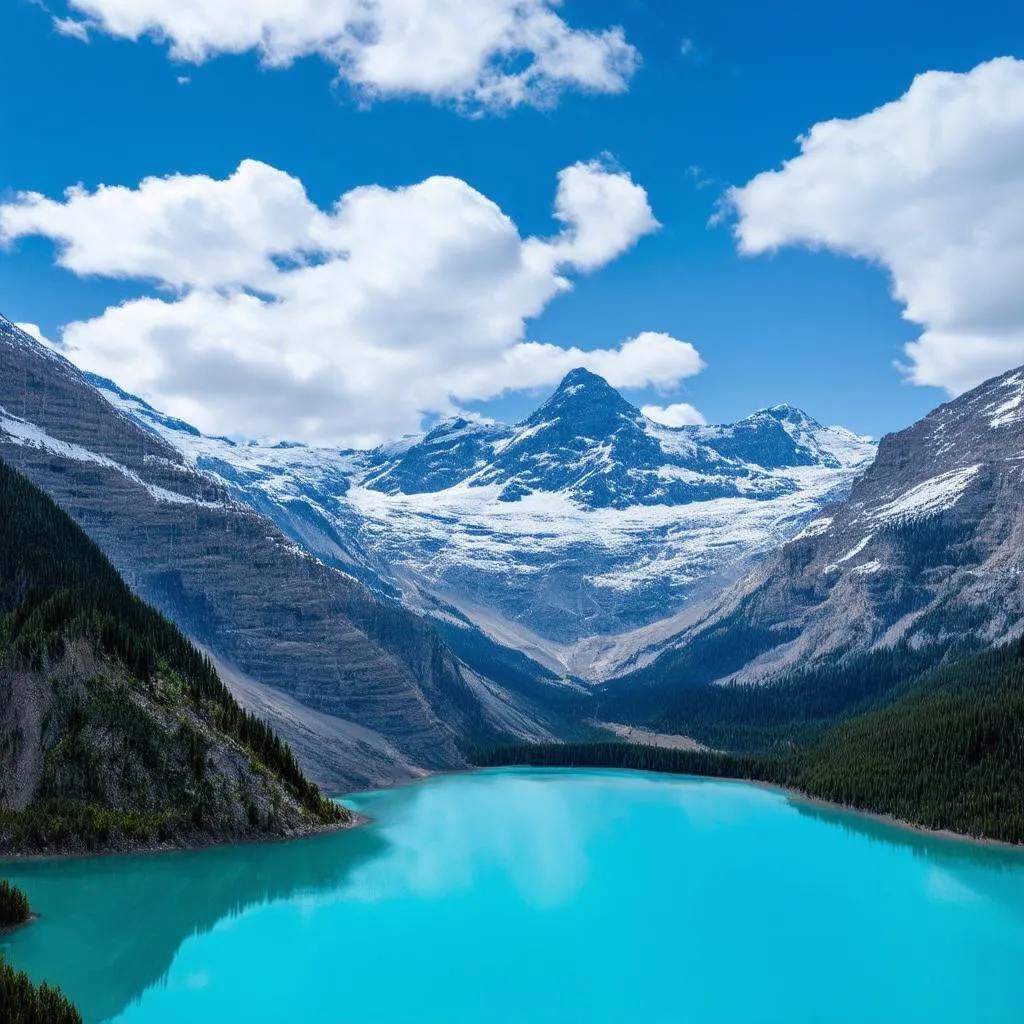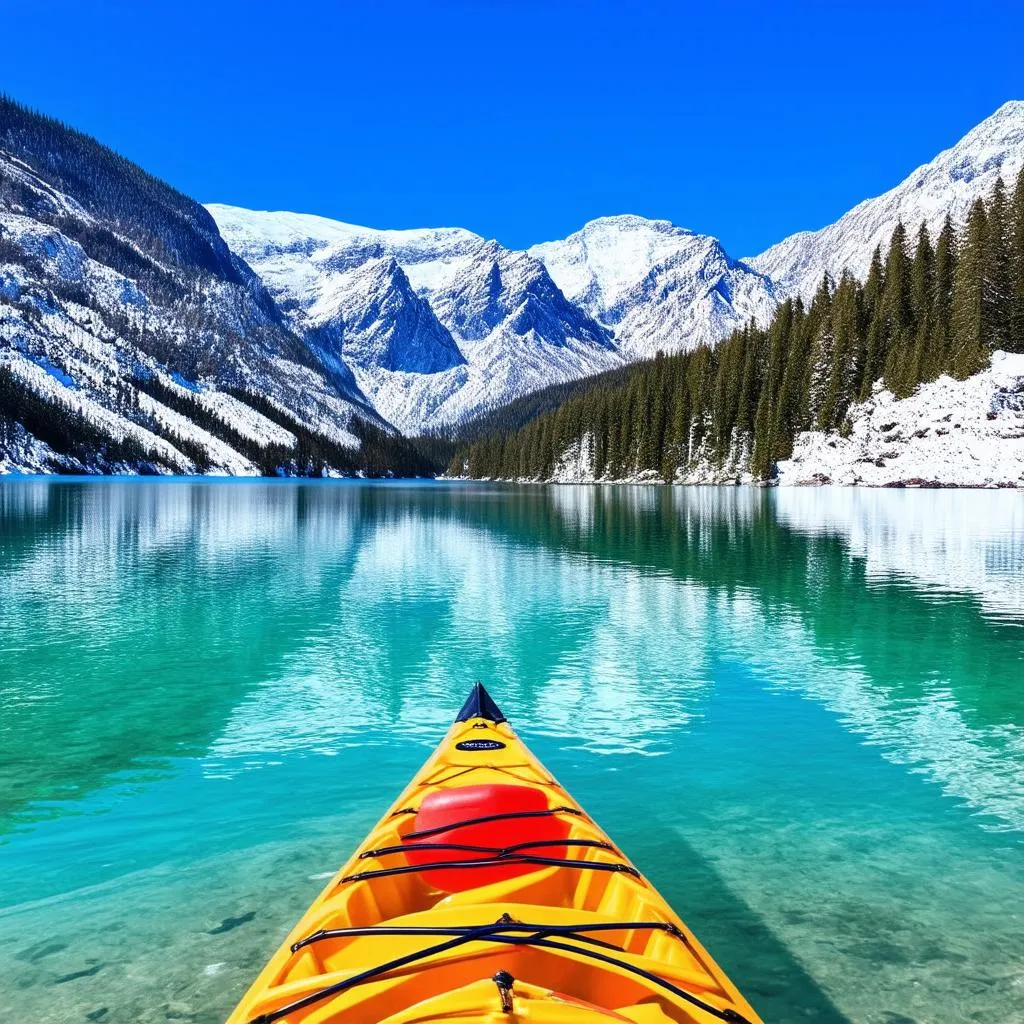“A journey of a thousand miles begins with a single step,” or in this case, a quick trip across the border! Many US citizens dream of experiencing the Great White North, and the good news is, traveling to Canada is generally hassle-free. But, like any journey, it’s best to be prepared. So, can US citizens travel to Canada? Absolutely! Let’s dive into everything you need to know.
Entering Canada: What You’ll Need
Passport or Enhanced Driver’s License?
While a valid US passport is the most common document used for entering Canada, you have options! The Western Hemisphere Travel Initiative (WHTI) allows US citizens to use other forms of identification for land and sea travel, like an enhanced driver’s license (EDL).
Thinking of flying? Air travel requires a valid US passport, even for short trips.
Do I Need a Visa to Visit Canada?
For US citizens, tourist visits to Canada for less than 180 days don’t require a visa. However, always check the official Government of Canada website for the most up-to-date information, as regulations can change.
Don’t Forget Your Travel Documents!
“An organized traveler never forgets their toothbrush!” Similarly, keeping your travel documents handy is key to a smooth journey. This includes:
- Proof of Citizenship: Your passport or EDL.
- Travel Itinerary: Having a general plan, including accommodation bookings, can be helpful.
- Proof of Financial Support: While not always required, it’s wise to carry evidence of funds to cover your stay.
Planning Your Canadian Adventure
When to Go: Embracing the Seasons
Canada boasts diverse landscapes and experiences year-round.
- Spring: Witness nature awaken with blooming flowers and pleasant temperatures, perfect for exploring cities like Vancouver or Victoria.
- Summer: Embrace the warmth and sunshine with outdoor adventures in Banff National Park or a visit to Niagara Falls.
- Autumn: Be mesmerized by the vibrant fall foliage, especially in places like Algonquin Provincial Park in Ontario.
- Winter: Embrace the magic of winter wonderlands in Quebec City or hit the slopes in Whistler.
Tip: Consider traveling during the shoulder seasons (spring and fall) for pleasant weather and fewer crowds.
Where to Go: From Coast to Coast
Canada offers endless opportunities for exploration.
- For the Urban Explorer: Discover the vibrant multicultural cities of Toronto, Montreal, or Vancouver.
- For the Nature Enthusiast: Immerse yourself in the breathtaking beauty of Banff National Park, Jasper National Park, or Cape Breton Island.
- For the History Buff: Step back in time in Quebec City, explore the historic streets of Halifax, or visit the Canadian Museum of History in Ottawa.
Did You Know? Canada is home to the world’s longest coastline! A road trip along the Pacific Coast Highway in British Columbia is highly recommended by travel expert, Dr. Sarah Thompson, author of “The Ultimate Guide to Canadian Road Trips”. “The stunning ocean views and charming coastal towns create an unforgettable experience,” says Dr. Thompson.
Budgeting for Your Trip: Making the Most of Your Loonies
Canada uses the Canadian dollar. While the cost of living is comparable to the US, budgeting is essential.
Here’s a sample budget breakdown for a week-long trip for two:
| Expense | Estimated Cost (CAD) |
|---|---|
| Round-trip flights (from major US city) | $800 – $1500 |
| Accommodation (mid-range hotel) | $700 – $1400 |
| Food & Drinks | $500 – $1000 |
| Transportation (rental car/public transit) | $200 – $500 |
| Activities & Entertainment | $300 – $600 |
| Total (Approximate) | $2500 – $5000 |
Remember: This is just an estimate. Costs can vary depending on travel style, destination, and time of year.
Essential Tips for US Citizens Traveling to Canada
- Stay Connected: Purchase a Canadian SIM card or ensure your US phone plan has international coverage.
- Respect Local Customs: Canadians are known for their politeness! Embrace the friendly atmosphere.
- Pack for All Weather: Canada’s weather can be unpredictable. Layers are key!
- Learn a Few French Phrases: While English is widely spoken, knowing a bit of French, especially in Quebec, is appreciated.
Frequently Asked Questions
Q: Can I use my US health insurance in Canada?
A: No, US health insurance typically doesn’t cover medical expenses in Canada. It’s crucial to have travel insurance.
Q: What’s the legal drinking age in Canada?
A: The legal drinking age varies by province but is generally 18 or 19.
Q: Can I drive in Canada with my US driver’s license?
A: Yes, you can generally drive in Canada with a valid US driver’s license for a certain period. However, carrying an International Driving Permit (IDP) is recommended.
Q: Are there any COVID-19 restrictions for US travelers?
A: Always check the latest travel advisories and requirements on the Government of Canada website, as restrictions can change.
Ready for Your Canadian Adventure?
Planning a trip involves more than just logistics; it’s about tapping into the energy of the destination. In Feng Shui, travel is seen as a way to enhance personal growth and invite new opportunities. Imagine standing at the foot of Niagara Falls, feeling the mist on your face, or hiking through the Canadian Rockies, surrounded by nature’s grandeur – these experiences can be truly transformative.
Start planning your unforgettable Canadian adventure today and discover the wonders that await just across the border!
For more travel tips and inspiration, explore other insightful articles on TRAVELCAR.edu.vn, your trusted source for travel information.
 Canadian Rockies Mountains
Canadian Rockies Mountains
 Quebec City Old Town
Quebec City Old Town
 Banff National Park Lake Louise
Banff National Park Lake Louise